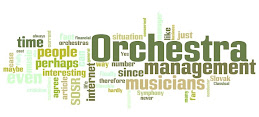While Slovakia has experienced during the decades of totalitarianism political limitations to free information until 1989, for 20 years now it has entered formally the free "western" world, where information is accessible, especially since the introduction of internet and the like. Our world has gradually changed - we became more dynamic, more global, and more technological. IT-technological that is: Our borders have somewhat vanished, and we can nowadays access instantaneously electronic data whether from Anchorage or Auckland.
This would, in theory, give us a grand virtual mobility, where the geographic distances are irrelevant. On the one hand, as we became more computer literate (let's admit it - how many people were 25 years ago knowledgeable about RAM, kbps, IP, UTLs and you name it) we have a rich scala of comparison at our fingertips; in the event I recall a certain title by e.g. Jane Austen, I can google the book and eventually legally download it, or read some background info on it. All within a few minutes. In the old days, I could visit the nearest library, and if the book was taken, I had to wait another couple of weeks perhaps.
Technology has definitively also influenced our connection to arts. Not just Picasso's works can be viewed, music of all sorts is available from our sofas. While in the old days, we savoured unique life concerts, records brought - be it with some quality limitation - music into our homes. Nowadays, we can hear performances from Sydney, Los Angeles, Seoul, or Covent Garden, and compare them with the Concertgebouw, Berliner Philharmoniker, La Scala or the Gewandthaus. But now in full hi-fi quality, digitally remastered. A former manager of a Dutch symphony orchestra once described it as our "Ear-Phone Experience": When being at a live-concert, it is no longer the experience of hearing beautiful music to pleasantly spend the evening, but it has become a "comparing notes" with the other dozens of prominent performers.
Departing from this, technology moved us a bit forward also in a different field; now that we have become more informed, we have also must have added to our critical preferences - or at least we should. While all over the world the era of the so-called Web 2.0 is not a mere phenomenon of just globalising business vis a vis your home, strengthening networking; even arts has now strongly boarded this vehicle for their marketing purposes. While major orchestras even appear on Facebook or Twitter (to name a few), actively informing about there upcoming concerts, even providing possibilities of viewing online or downloading their concert, there is an odd silence in Slovakia.
Although urging colleagues and other institutions to utilise these available tools, the vast majority has no connection to them. The effect of internet (or Web 2.0) is highly underestimated. There is hardly any connection felt for the possible synergy. The role of a marketing manager is grossly downgraded, as the willingness to invest in this field is close to zero. Slovakia has - sad to say - hardly understood how to deal with quality and how to sell it. Political structures hold a stiffling grip on culture, which is obvious on how institutions are run and when the chief editor of the only classical music magazine, is very selective in his criticism towards key figures in Slovak's culture, giving it a slight flavour of party propaganda. Well, perhaps his job is at stake.
While I sadly see how fast forward moving culture has connected all over the world, where colleagues in my direct neighbourhood like Christian Henner-Fehr, David Röthler, Karin Janner and many more, are successfully channeling art through the Web 2.0, I see Slovakia like a time-capsule, still experimenting as if still in the 1950s. Where music trends are generally speaking outdated, and where innovation is rather smothered than encouraged. Web 2.0 is a great tool, but for Slovakia it is still an unknown field, where the only problem is the Slovak mentality, unfortunately. The prospects are not very optimistic I am afraid.
MS

1 comment:
Interesting post. I wonder what do you think about web 2.0 in political and social processes. I am doing research on e-participation experience and in particular digital civil society projects in Slovakia. Have you met any of such applications? Or they are mostly based on Facebook? I would be interested in your comments
Anton Shynkaruk
http://www.linkedin.com/in/antonshynkaruk
Post a Comment